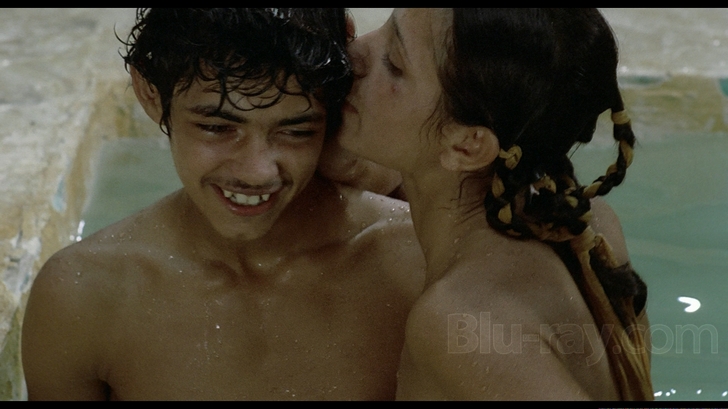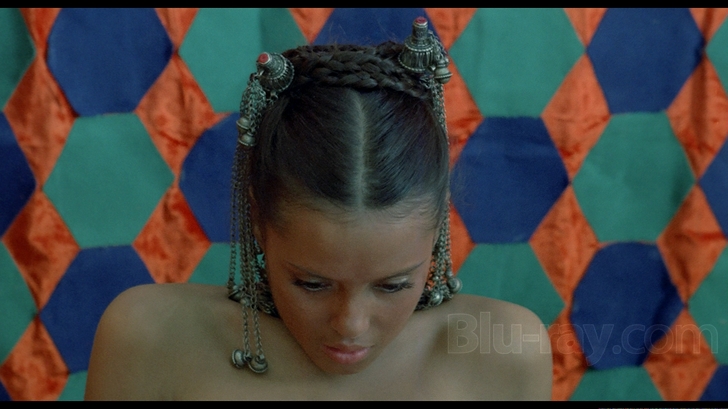From Oui (February 1975). The word “coyness” was misprinted as “boyness,” and I wondered at the time if this might have been an editor’s Freudian slip. –- J.R.
The Arabian Nights. In his treatment of The Arabian Nights, Pier Paolo
Pasolini has created what might be considered his first pagan film — a work in
which Western coyness and guilt about sex (and most of the other varieties of
20th Century angst) seem to have mysteriously vanished. Shooting an odd batch
of tales within tales in gorgeous sections of Yemen, Ethiopia, Iran and Nepal,
Pasolini delves into a sort of fairy-tale anthropology that is often most luminous
when it’s least comprehensible. The storytelling is ponderous, but the moods
are spellbinding. The magic that we usually associate with these tales is kept
in the wings until the later sequences and is awkwardly handled when it appears.
It’s the magic of the people and the places that holds Pasolini’s interest,
and the quality that most sustains this genuinely other-worldly film is its almost
primeval strangeness.
–JONATHAN ROSENBAUM



